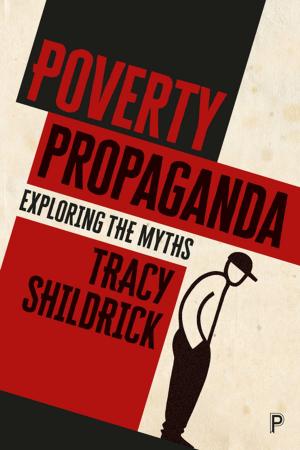Parenting the crisis
The cultural politics of parent-blame
Nonfiction, Social & Cultural Studies, Social Science, Sociology| Author: | Jensen, Tracey | ISBN: | 9781447325086 |
| Publisher: | Policy Press | Publication: | March 28, 2018 |
| Imprint: | Policy Press | Language: | English |
| Author: | Jensen, Tracey |
| ISBN: | 9781447325086 |
| Publisher: | Policy Press |
| Publication: | March 28, 2018 |
| Imprint: | Policy Press |
| Language: | English |
Bad parenting is so often blamed for Britain’s ‘broken society’, manifesting in sites as diverse as the government reaction to the riots of 2011, popular ‘entertainment’ like Supernanny and the discussion boards of Mumsnet. This book examines how these pathologising ideas of failing, chaotic and dysfunctional families are manufactured across media, policy and public debate and how they create a powerful consensus that Britain is in the grip of a ‘parent crisis’. It tracks how crisis talk around parenting has been used to police and discipline families who are considered to be morally deficient and socially irresponsible. Most damagingly, it has been used to justify increasingly punitive state policies towards families in the name of making ‘bad parents’ more responsible. Is the real crisis in our perceptions rather than reality? This is essential reading for anyone engaged in policy and popular debate around parenting.
Bad parenting is so often blamed for Britain’s ‘broken society’, manifesting in sites as diverse as the government reaction to the riots of 2011, popular ‘entertainment’ like Supernanny and the discussion boards of Mumsnet. This book examines how these pathologising ideas of failing, chaotic and dysfunctional families are manufactured across media, policy and public debate and how they create a powerful consensus that Britain is in the grip of a ‘parent crisis’. It tracks how crisis talk around parenting has been used to police and discipline families who are considered to be morally deficient and socially irresponsible. Most damagingly, it has been used to justify increasingly punitive state policies towards families in the name of making ‘bad parents’ more responsible. Is the real crisis in our perceptions rather than reality? This is essential reading for anyone engaged in policy and popular debate around parenting.















